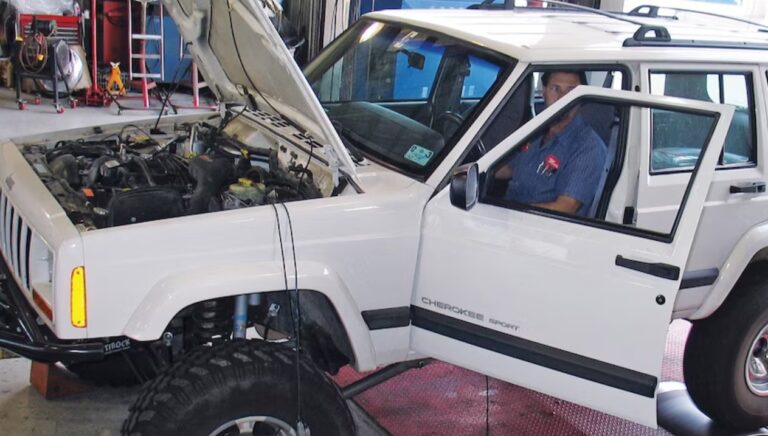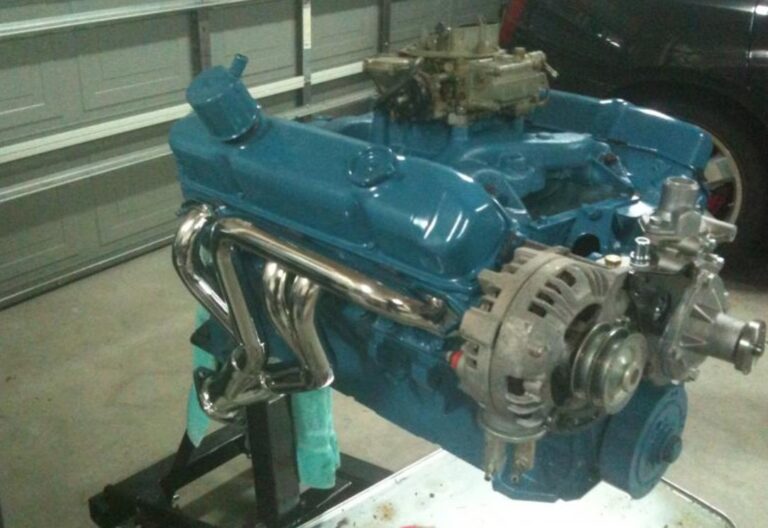Can You Put A V8 Engine In A V6 Car? [Answered]
Are you looking for a Can You Put A V8 Engine In A V6 Car? This article delves into the complexities, considerations, and steps involved in such an engine swap. In the world of automotive modifications, the question of whether you can replace a V6 engine with a more powerful V8 is a common one. This idea tantalizes car enthusiasts who dream of boosting their vehicle’s performance.
Key Takeaways
- Feasibility: Swapping a V6 for a V8 is technically possible.
- Considerations: Involves modifications to the engine bay, mounts, and possibly transmission.
- Cost: Can be expensive, depending on the car and the V8 engine chosen.
- Expertise Required: Not a DIY project for beginners; professional assistance is recommended.
- Impact on Vehicle: This can significantly enhance performance but may affect the car’s balance and handling.
Can You Put A V8 Engine In A V6 Car?
Yes, you can put a V8 engine in a V6 car, but it requires significant modifications to the vehicle. This includes alterations to the engine bay, transmission, drivetrain, cooling, and exhaust systems, among others. It’s a complex and potentially costly undertaking that should ideally be done by professionals with expertise in engine swaps.

Understanding the Basics
Swapping a V6 engine for a V8 is a transformative process that can significantly increase a car’s performance. This involves not only the engine itself but also numerous other components. Compatibility is key, and not all V6 cars can accommodate a V8 without extensive modifications.
Technical Challenges and Solutions
The biggest challenge is ensuring the new engine fits in the existing engine bay. Custom fabrication might be needed for engine mounts and the transmission tunnel. Cooling systems, exhaust, and electronics also need consideration.
Compatibility and Customization
Assessing Vehicle Suitability
Not all vehicles are suitable for a V8 swap. Factors like the size of the engine bay, existing transmission, and the vehicle’s chassis play a critical role in determining feasibility.
Custom Modifications Required
Modifications can include strengthening the chassis, upgrading the suspension, and altering the drivetrain. These changes ensure that the car can handle the increased power and torque of a V8 engine.
Cost Considerations

Estimating the Budget
The cost of putting a V8 engine in a V6 car varies widely. It’s not just the cost of the engine but also the associated modifications and labor. A rough estimate can range from a few thousand dollars to tens of thousands.
Balancing Budget and Performance
Choosing the right V8 engine and deciding on the extent of modifications are key to managing costs. Sometimes, opting for a less powerful V8 or minimal modifications can keep costs down while still achieving significant performance gains.
Technical Expertise Required
Understanding the Complexity
This is not a project for amateur mechanics. The complexity of engine swaps requires a deep understanding of automotive mechanics and electronics.
Seeking Professional Help
It’s advisable to consult with or hire experienced mechanics who specialize in engine swaps. This ensures that the swap is done safely and effectively, avoiding costly mistakes.
Impact on Vehicle Dynamics

Enhancing Performance
The primary advantage of a V8 engine is its superior power and torque. This can dramatically improve acceleration and overall performance.
Handling and Balance Considerations
A larger engine can affect the vehicle’s weight distribution and handling. Upgrades to the suspension system and brakes might be necessary to maintain balance and ensure safe driving.
Legal and Insurance Aspects
Regulatory Compliance
Engine swaps can affect a vehicle’s compliance with emission and safety regulations. It’s important to understand the legal implications in your region.
Insurance Implications
Such modifications can also impact insurance policies. Informing your insurer and understanding potential changes in coverage is crucial.
How Can I Turn My V6 Car Engine Into V8?
Turning a V6 car engine into a V8 involves a complex process known as engine swapping. This process requires removing the existing V6 engine and replacing it with a V8.
However, it’s not as simple as just exchanging one engine for another. Significant modifications are often required, including altering the engine bay for fitment, upgrading the transmission and drivetrain to handle the increased power, and revising the exhaust and cooling systems.
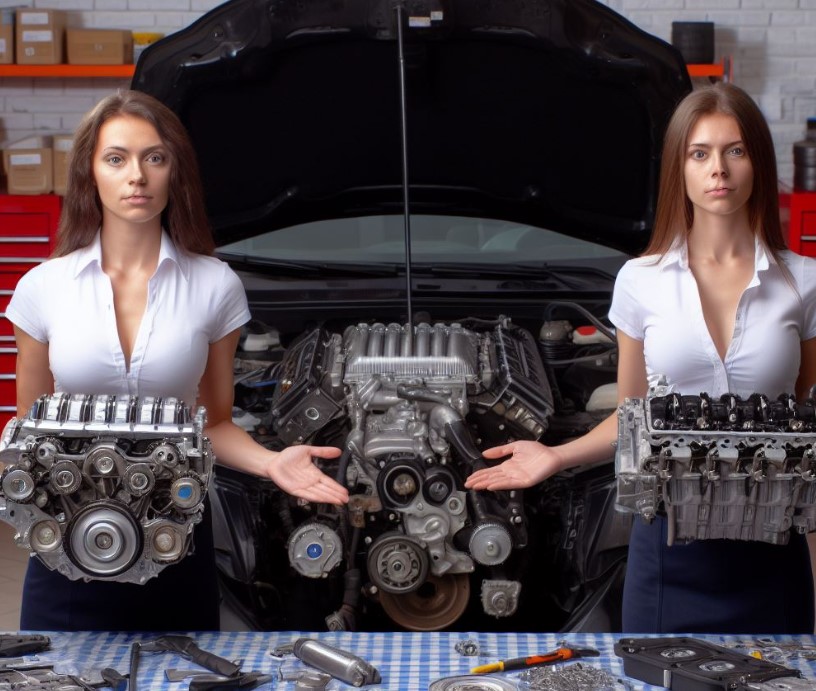
Additionally, electronic systems and wiring may need adjustments to accommodate the new engine. It’s essential to have a thorough understanding of automotive engineering or seek professional help, as this is a highly technical and complex project.
Is It Worth It To Get A V8 Over A V6?
Whether it’s worth getting a V8 over a V6 depends on your priorities and needs. A V8 engine typically offers more power and torque, leading to better performance and acceleration.
If performance is a primary concern, a V8 can be a desirable upgrade. However, this comes with trade-offs, including increased fuel consumption, higher insurance costs, and potentially more significant environmental impact.
For daily driving and fuel efficiency, a V6 might be more practical. The decision hinges on balancing these factors against your desires for performance and practicality.
Can A V6 Keep Up With A V8?
In most cases, a V6 cannot match a V8 in terms of raw power and acceleration. V8 engines typically have larger displacement and more cylinders, contributing to higher output and torque.
However, modern V6 engines, especially those with turbocharging or supercharging, can offer performance that approaches that of some V8s.
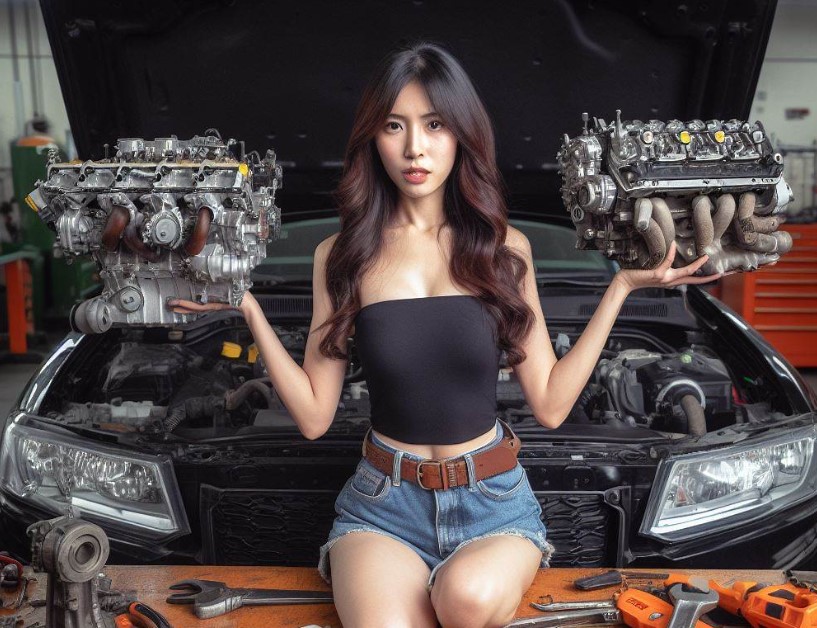
The gap between V6 and V8 performance has narrowed with advancements in engine technology. In everyday driving conditions, a well-tuned V6 can be more than sufficient and can come close to a V8’s performance while offering better fuel economy.
Can A V8 Engine Fit In A V6 Charger?
A V8 engine can technically be fitted into a V6 Dodge Charger, a popular choice for engine swaps due to the Charger’s robust design and rear-wheel-drive layout.
However, this swap requires significant modifications. The Charger’s V6 and V8 models have different transmissions, suspensions, and other components.
Swapping to a V8 requires not only fitting the engine but also upgrading these systems to handle the increased power and torque. Professional assistance is highly recommended for such a project due to its complexity and the need for precise modifications.
Pros And Cons Of Engine Swapping: Is It Worth It?
Pros
- Increased Performance: The most significant advantage is the boost in power and acceleration.
- Customization: Allows for a high degree of personalization and performance tuning.
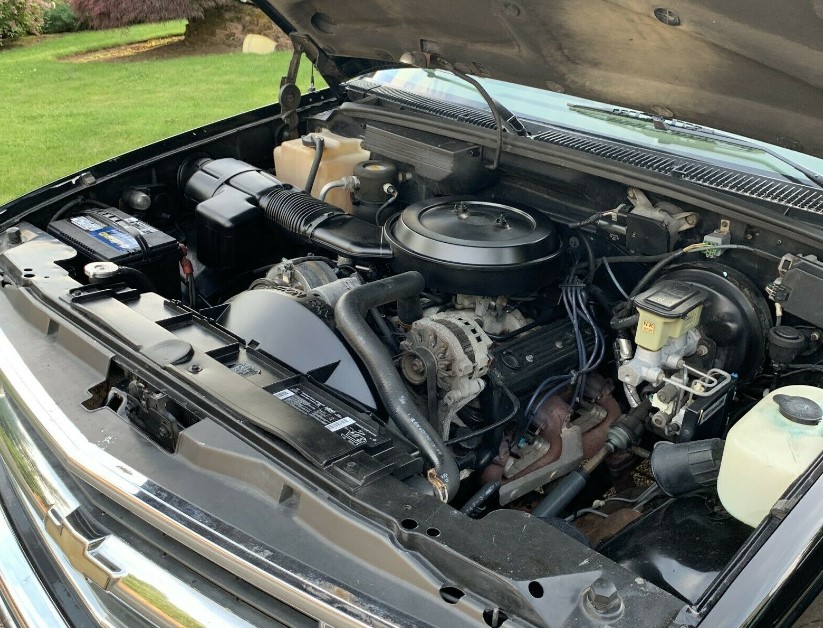
Cons
- Cost: Engine swaps can be very expensive, including the cost of the engine, labor, and additional modifications.
- Complexity: It’s a complex project requiring advanced mechanical skills and knowledge.
- Legal and Insurance Issues: This may affect the vehicle’s legal status and insurance coverage.
- Reliability: Swapping engines can sometimes lead to reliability issues if not done correctly.
Whether engine swapping is worth it depends on your goals, budget, and willingness to tackle the complexities and potential issues that come with it. It’s a significant undertaking that can greatly enhance a vehicle’s performance but comes with substantial costs and risks.
Conclusion
Putting a V8 engine in a V6 car is an ambitious project that can transform your vehicle’s performance. While it brings considerable benefits in terms of power and acceleration, it also requires careful planning, significant financial investment, and professional expertise.
The modifications go beyond just the engine swap, impacting various aspects of the vehicle, from handling to legal compliance. Whether it’s a passion project or a quest for ultimate performance, understanding the complexities involved is key to a successful engine transformation.
Frequently Asked Questions
Are there alternatives to a V8 swap for increasing performance?
Yes, alternatives include turbocharging or supercharging the existing V6 engine, enhancing the intake and exhaust systems, or implementing electronic modifications like ECU tuning. These can significantly boost performance without the complexities of an engine swap.
Can swapping to a V8 engine improve fuel efficiency?
Generally, swapping to a V8 engine will not improve fuel efficiency. V8 engines usually consume more fuel due to their larger size and higher power output compared to V6 engines.
What should I consider when choosing a V8 engine for the swap?
Consider the engine’s size, power output, compatibility with your car, and your performance goals. Additionally, think about the availability of parts, the engine’s reliability, and how it will interact with your car’s existing systems.
Is it possible to do a V6 to V8 engine swap at home?
While technically possible, a V6 to V8 engine swap is a complex project that typically requires advanced mechanical skills, specialized tools, and a thorough understanding of automotive systems. For most people, it’s advisable to seek professional help.

Welcome to the exhilarating world of Matt Rex, a professional car racer turned renowned vehicle enthusiast. Immerse yourself in his captivating blog as he shares heart-pounding adventures, expert reviews, and valuable insights on cars, trucks, jets, and more. Fuel your passion for speed and discover the beauty of vehicles through Matt’s engaging stories and meticulous expertise. Join the ever-growing community of enthusiasts who find inspiration and expert advice in Matt Rex’s blog—a digital hub where the thrill of speed meets the pursuit of knowledge.


